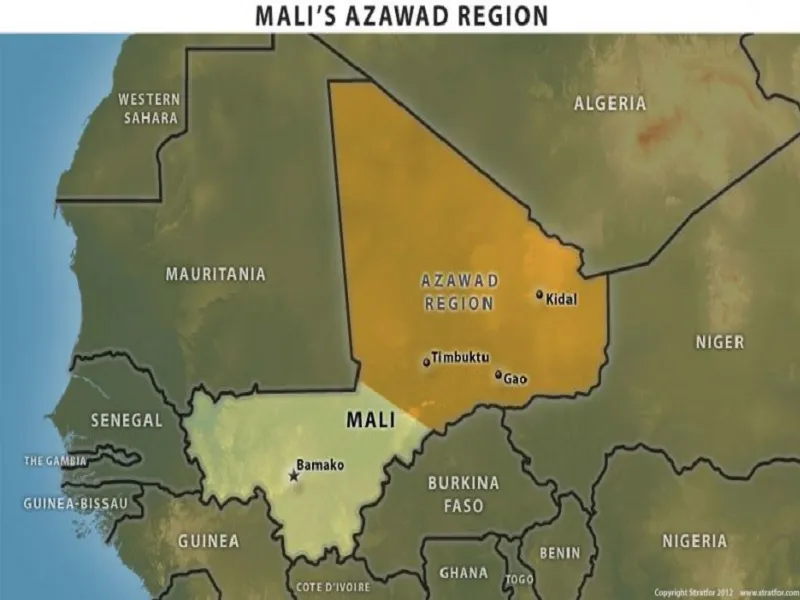Russia must avoid being drawn into the quagmire that its non-state adversaries and their speculative Western allies are hoping to create for it in Mali.
Reports began circulating over the weekend that the newly rebranded Wagner suffered a devastating ambush in Northern Mali at the hands of Tuareg separatists. Russian PMCs are active there at the invitation of the revolutionary government to help them counter terrorist threats such as those posed by the aforementioned group and religious extremists, whose prior alliance prompted France’s failed intervention over the last decade. Here are some background briefings to bring readers up to speed:
- 23 July 2022: “The Western Infowar On Mali Rebrands Terrorists As Simply Being ‘Extremist/Jihadi Rebels’”
- 24 July 2022: “Al Qaeda’s Malian Branch Just Declared War On Russia”
- 10 August 2022: “Russia’s Latest Military Aid To Mali Confirms Its Regional Anti-Terrorist Commitment”
- 15 February 2023: “Russia’s Newfound Appeal To African Countries Is Actually Quite Easy To Explain”
- 8 May 2023: “American Officials Told Politico Their Plan For Waging Hybrid War Against Wagner In Africa”
The details of what just happened are scant, but “Russians With Attitude” believe that “they went (too) deep into Islamist-held tribal territories, pursing enemies towards the Algerian border, and drove straight into a trap with IEDs taking out several of the vehicles immediately and a VBIED hitting the convoy. Air support came too late due to a sand storm.” The degree to which this might have been coordinated with US and/or France is unclear, but such a scenario can’t be ruled out considering those two’s interests.
Russia must think carefully about its next moves in Mali since it risks being caught in “mission creep”. That country’s conflict is more complex than observers might imagine since the transnational Tuareg minority has fought for independence over the past decade as “Azawad” in ways that mirror the Kurds’ cause before settling for partial autonomy. The military-led government’s scrapping of a 2015 peace deal in late January on the grounds that the Tuaregs violated it first further complicates the political situation.
This context doesn’t excuse their use of terrorist tactics, nor their speculatively resumed cooperation with religious extremists or related coordination with the West, but simply shows that there might be some legitimate grievances behind their return to arms. Accordingly, the best-case scenario is to emulate the Syrian formula of including all members of the “non-terrorist anti-government opposition” (NTAGO) in new peace talks, though that takes two to tango and neither side appears interested in this for now.
Each remains committed to advancing their goals on the battlefield, thus meaning that the conflict is expected to worsen before there’s any realistic chance of discussing a political solution, with all that entails for drawing Russian PMCs into a potential quagmire. It’s improbable that Russia will cut and run, especially since Mali is at the core of its “Democratic Security” efforts in Africa that were detailed in the last two enumerated analyses above, but it also can ill-afford sending large-scale reinforcements.
After all, the latest phase of the decade-long Ukrainian Conflict continues raging and is a much greater national security priority for Russia than aiding its Malian allies, and limited resources mean that whatever’s sent to the West African front might be at the Eastern European one’s expense. A balance must be struck between these two New Cold War fronts, which could take the form of more PMCs and some additional air (including unmanned) assets being sent to Mali, but that’s about all that it can spare.
If Russia did indeed suffer a devastating ambush in Northern Mali like what was just reported, then it must first ensure that the separatists don’t exploit it to threaten or even recapture the nearby regional center of Kidal that was liberated last fall. If its Malian allies hold their own but can’t push the separatists back, then the front lines might eventually freeze, thus creating an opportunity for reviving the political process with the NTAGO even though the details thereof can only be speculated at this time.
At all costs, however, Russia must avoid being drawn into the quagmire that its non-state adversaries and their speculative Western allies are hoping to create for it. Its PMCs’ Malian mission can’t be abandoned, but it also can’t divert any significant resources from the Eastern European front either. The situation is very serious after what allegedly transpired this weekend, but it’s not as dire as its opponents misportray it as. The challenges shouldn’t be underestimated, but they also aren’t insurmountable either.

